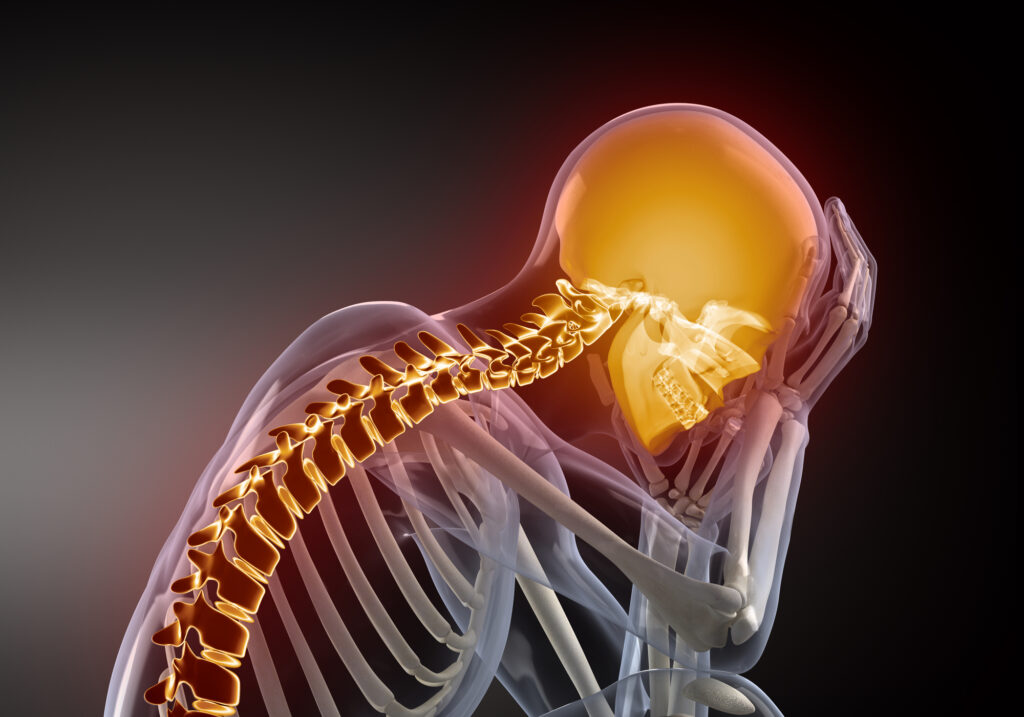If you drive for many years, there’s an excellent chance you’ll be in a car accident at some point. Some experts estimate that you’ll be in an accident about once every seven years. If you drive carefully and obey traffic laws, you might buck those odds.
Even if you’re in a car accident, it might not be serious. You can probably survive a fender bender with only minor injuries. It’s when either you or someone else drives recklessly that you might suffer more severe, potentially life-altering damage.
Brain stem injuries are among the worst that you might suffer. Let’s look at four possible brain stem injury outcomes.
Speech Loss
Doctors fear brain stem injuries because the brain stem:
- Is the brain’s most primitive part
- Controls basic bodily functions
The brain stem controls your breathing and heartbeat. It’s a conduit through which sensory information passes. This information travels between the body and the rest of the brain, and if something interrupts these signals, the body cannot function normally.
Because of this, if a car accident damages your brain stem, you might no longer be able to speak or communicate like you once could. This is seldom the sort of thing that physical or speech therapy can fix. With brain stem damage, you might not speak another word for the rest of your life.
You Can’t Breathe on Your Own
It’s also possible with car accident brain stem damage that you will no longer be able to breathe independently. Breathing is an involuntary function. In other words, your body does it without you having to concentrate on it or think about it.
If you can’t breathe on your own:
- The doctors must hook you up to a life support system continually
- You’re technically alive, but you won’t enjoy it
Sometimes, family members want to keep their loved one alive following a car crash brain stem injury. They love them and don’t want to let them go. However, they understand that this individual will never get up and walk again, nor will they probably speak or acknowledge their surroundings.
In this instance, the family usually has to refer to the individual’s living will to see if they want to live this way. If the person never put a stipulation in the will for this sort of thing, the family must make this heartbreaking decision on their own.
You Might Lapse into a Coma
Some brain stem injuries could mean that you’ll be in a coma after the crash. This is a brain dead or vegetative state.
Again, the living will can probably dictate what the family decides to do. It’s true that some people wake up from comas. It’s rare, though, and the injured person could very well lie there for many years without ever waking up.
If this happens, the family must talk to the doctor to determine the best thing to do. If the doctor says they feel that it’s unlikely you’ll ever come out of the coma, your family might decide to pull the plug.
The alternative could be that you’ll live in a hospital or medical ward for years, with machines breathing for you. Tubes will provide nutrition, and you might not ever acknowledge the family members who are there in the room, doting on you.
Death
It’s also possible that in severe car crashes, you can damage your brain stem in such a way that it kills you. It might happen instantaneously, or you might linger at the hospital for a while.
It goes back to the brain stem being one of the most primitive and necessary body parts. Damage to a particular part of it might make the body’s recovery impossible. All the vital processes will slow and stop, and you’ll die, even with the best medical care or intervention.
These are not the only things that can happen with car crash brain stem injuries. You can lose your equilibrium and balance. You can deal with motor impairment or weakness. You might no longer be able to swallow, or perhaps you can no longer feel pain or temperature.
Doctors can seldom do a whole lot with brain stem injuries unless they’re minor. They’re more likely with car crashes at higher speeds or those involving multiple vehicles.
What we talked about are some sobering injuries, and it enforces what most drivers already know: you need to avoid distracted driving, never drink and drive, and follow all traffic laws to prevent these catastrophes.

